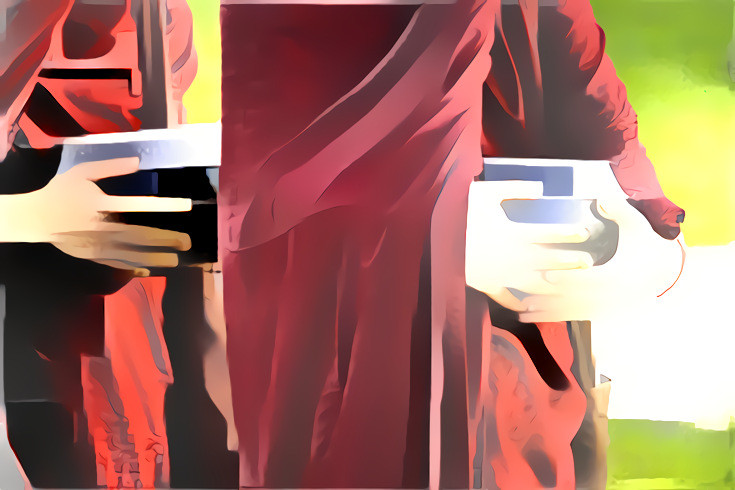
Here are the main points:
- Monks value detachment because it helps them focus on meditation and enjoying the subtleties of life.
- Although letting go of possessions and slowing down life is a tool to detach and liberate yourself, you do not have to let go of possessions as an end. Detachment, the consequence, is not about “not owning anything” but rather that nothing owns you.
- Do not force yourself to live ascetically without authentically understanding why said desires are unhealthy. Forced asceticism lead to backlashes and lack of progress and direction.
Monks do not just let go of possessions, they embrace lifestyle minimalism
It is not only about de-cluttering your possessions but also slowing down the pace of life and freeing the mind. We all have some form of obligations to fulfill. In order to maintain our grades, finances, and relationships, we have to quicken the pace of our lives. Eventually, we come to a point which our lives are so cluttered both physically and mentally that we can do nothing but blindly react to everything around us without any freedom or intention to live a life of fulfillment.
That is why monks commonly let go of possessions such as entertainment and comforts. Letting go of possessions is a useful tool to “burn the bridge” and to fully commit on their endeavors. The less you have, the greater your concentration and clarity. (Keep in mind there is a necessary foundation of health to maintain wellness and clarity.) Detachment creates space and priority for meditation, contemplation, growing themselves, and basking in the subtle joys of life.
Several monks embark on the path of detachment, only to discover that life satisfaction ultimately has nothing to do with what you own, it is about what owns you. In other words, you do not have to sell your house and live in a box (although some will and it can be useful for growth) but rather living life free and detached from your possessions and worries. It is about living a purpose greater than success, comfort, and validation.
There are two common objections which both share a common theme: Do not force yourself to live aesthetically out of discipline.
- “Why should I let go of my stuff? I don’t see why I should, but if it makes me a good person, then I’ll do it.”
- “I want to be a monk, therefore I have to let go of possessions.”
If you have these objections, do not force yourself to let go of possessions if there is no authentic motivation! Do not do it if you are not ready!
Forcefully letting go of possessions for moral reasons is one of the traps we fall for. This is especially the case for monks in Christian and Buddhist communes. The problem with forcing yourself to live ascetically without understanding why it benefits you is because you will have internal conflicts. We say eating a doughnut is unhealthy and wrong, yet we can barely hold our hand back from putting the doughnut in our mouth. In other words, you have desires you are holding back without understanding why your desires are unhealthy. Because of this, the pressure and resistance builds up, until one day, your discipline inevitably breaks down. Then, you backlash and “stuff yourself” and do something unhealthy or even dangerous.
With respect to religion traditions, this problem arises where people try to live by a moral code of what is good and bad: no alcohol, no sexual relations, no this, no that “because it is sinful.” Then, you have backlashes where they do something unspeakable or hypocritical such as drug trafficking, food bingeing, pedophilia, or money laundering. This is one reason why people are starting to criticize religion because they see high ideals followed by hypocrisy. This is not an accident, this is a feature, a trap that people fall into when they force themselves!
Join the discussion
What are your thoughts on detachment? Is asceticism a necessity for the life of a monk? Is it only a tool, eventually to discard when you reach your destination? Share your insights with us! – Justin
